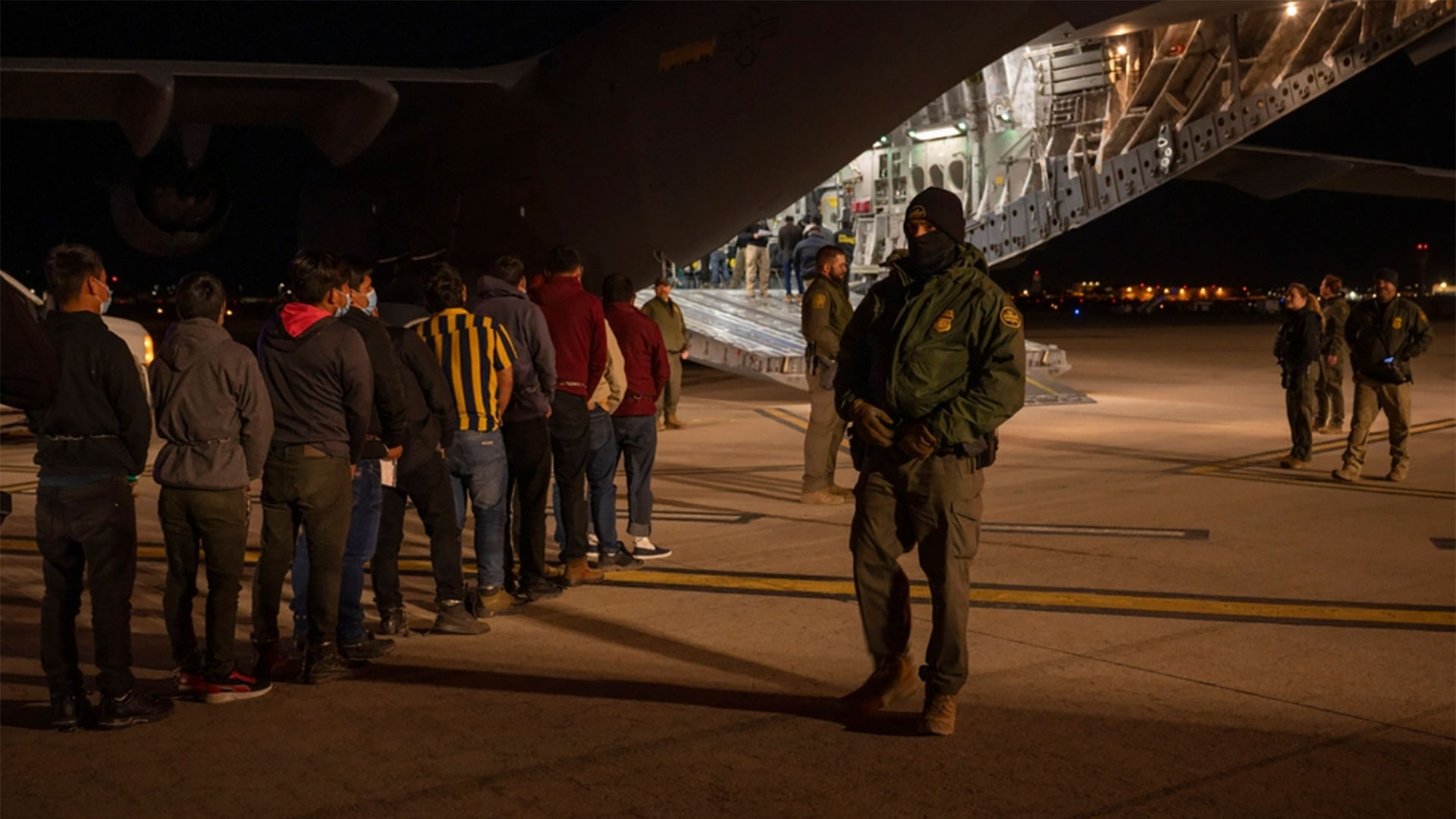Over the past week, the administration of U.S. President Donald Trump proceeded with the deportation of more than 200 Venezuelans accused of belonging to criminal organizations. Some of the deported migrants are now at the center of debate after being returned to the United States because authorities in El Salvador stated that they would not accept them into their country.
The controversy surrounding the deportations of Venezuelan immigrants grew at the start of this week when a Venezuelan migrant claimed that she and seven other women were sent back to the United States after the plane had landed in the Central American nation. According to her account, published by CNN, Salvadoran President Nayib Bukele indicated that he “would not accept women.”
Along these lines, a Nicaraguan migrant who also boarded the March 15 deportation flights and was sent back revealed that he heard a Salvadoran official tell authorities from the Servicio de Inmigración y Control de Aduanas (Immigration and Customs Enforcement, ICE) that El Salvador “would not detain someone from another Central American country because of the conflict it would cause.”
The Legal Battle Surrounding Deportations from the United States
The testimonies of immigrants who were returned to the United States were presented to District Judge James Boasberg, who is evaluating whether the Trump administration violated his court order, which stipulated that the deportation flights could not take off.
In her statement, the Venezuelan migrant recounted that when the flight took off, she overheard two ICE agents discussing the situation, and one of them allegedly said, “There is an order that says we cannot take off, but we’ve already done so.”
For its part, the Trump administration asserted that when the judge issued the order, the flights were already traversing an airspace where he had no jurisdiction. They also suggested that it would have been impossible to return the planes due to “serious national security, regulatory, and logistical issues.”
¿Migrantes deportados a El Salvador volvieron a Estados Unidos? El motivo por el que rechazaron a algunos detenidos
Durante la semana pasada, el gobierno del presidente estadounidense Donald Trump avanzó con la deportación de más de 200 venezolanos acusados de formar parte de organizaciones criminales. Algunos de los migrantes deportados están ahora en el centro de debate tras ser regresados a Estados Unidos debido a que las autoridades de El Salvador aseguraron que no los recibirían en su país.
La polémica en torno a las deportaciones de inmigrantes venezolanos sumó otro capítulo en el inicio de esta semana con las declaraciones de una migrante venezolana, quien sostuvo que ella y otras siete mujeres fueron devueltas a Estados Unidos después de que el avión aterrizara en el país centroamericano. De acuerdo a sus declaraciones, citadas por el medio CNN, el presidente salvadoreño, Nayib Bukele, señaló que “no aceptaría mujeres”.
En esa línea, un migrante nicaragüense que también estuvo en los vuelos de deportación del 15 de marzo y fue devuelto al país reveló que escuchó a un oficial salvadoreño expresar a las autoridades del Servicio de Inmigración y Control de Aduanas (ICE, por sus siglas en inglés) que El Salvador “no detendría a alguien de otro país centroamericano debido al conflicto que causaría”.
La batalla legal que rodea a las deportaciones de Estados Unidos
Los testimonios de los inmigrantes que fueron devueltos a Estados Unidos se presentaron al juez de distrito James Boasberg, quien está evaluando si la administración Trump violó su orden judicial, la cual establecía que los vuelos de deportación no podrían partir.
En su declaración, la migrante venezolana relató que cuando despegó el vuelo escuchó a dos agentes de ICE conversar sobre la situación, y uno de ellos habría expresado que “hay una orden que dice que no podemos despegar, pero ya lo hemos hecho”.
Desde su lugar, la administración Trump aseguró que cuando el juez dictaminó la orden los vuelos ya estaban sobrevolando un espacio sobre el cual no tenía jurisdicción. Asimismo, insinuaron que no habría sido posible regresar los aviones aduciendo “graves problemas de seguridad nacional, regulatorios y logísticos”.

